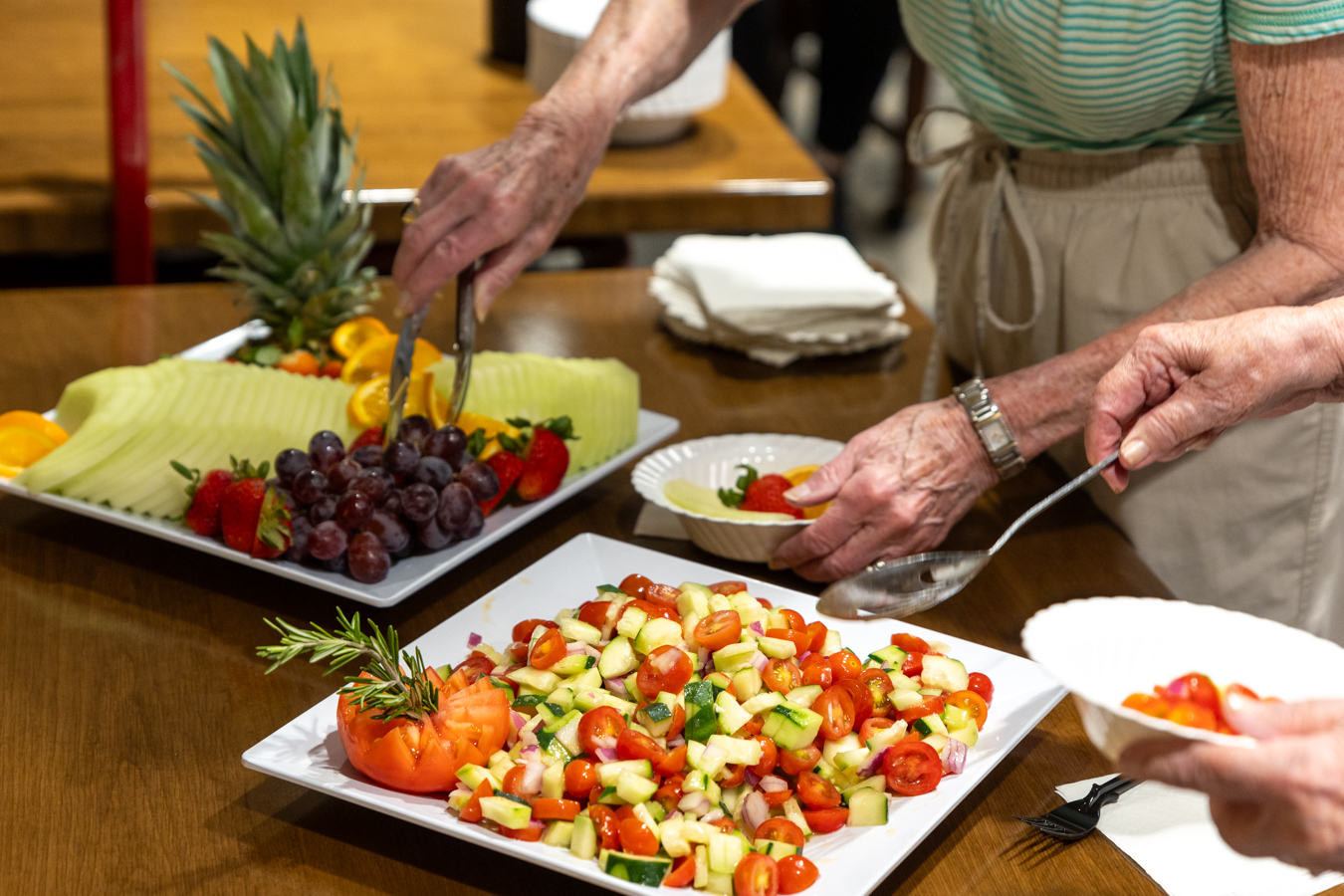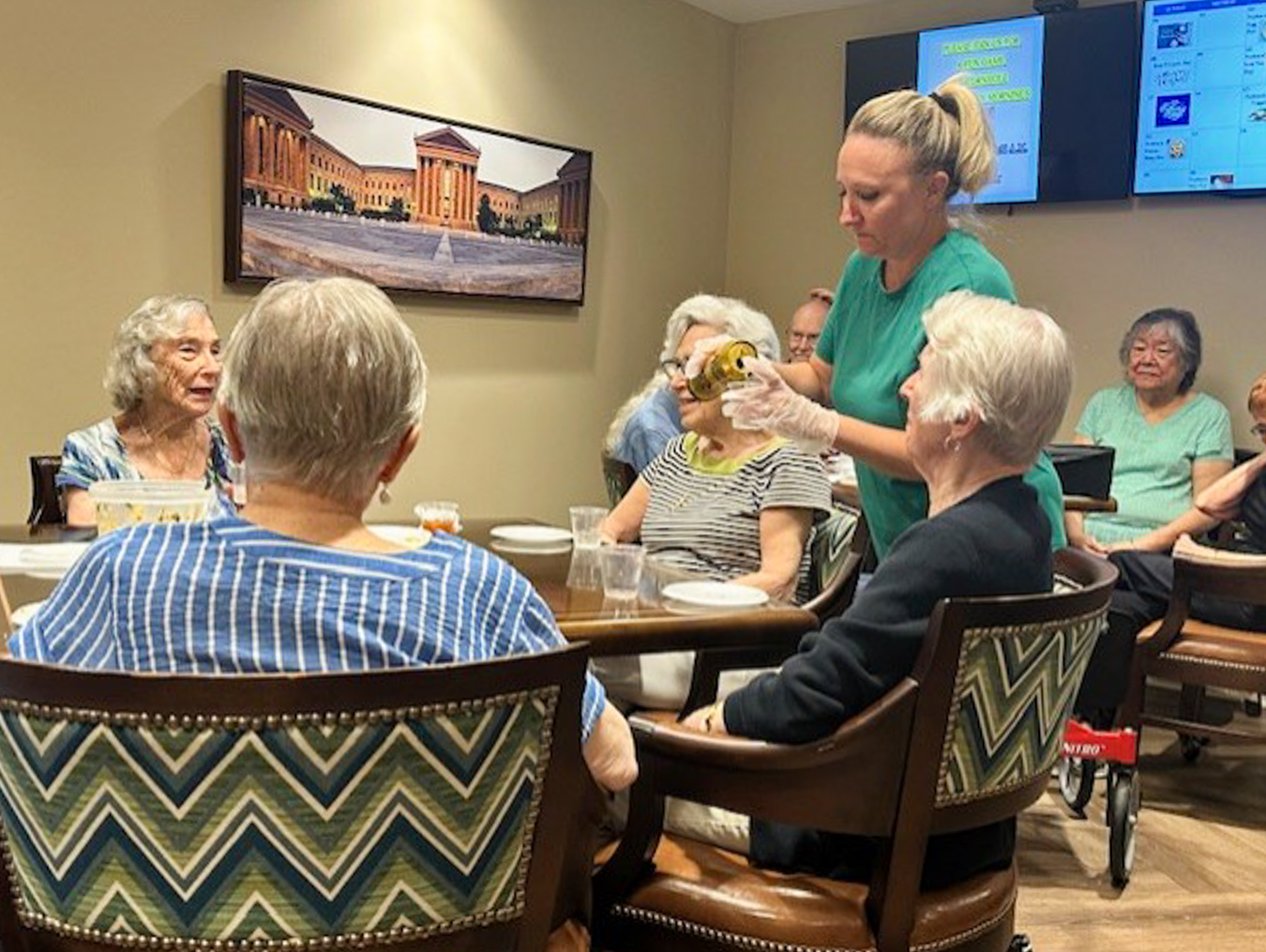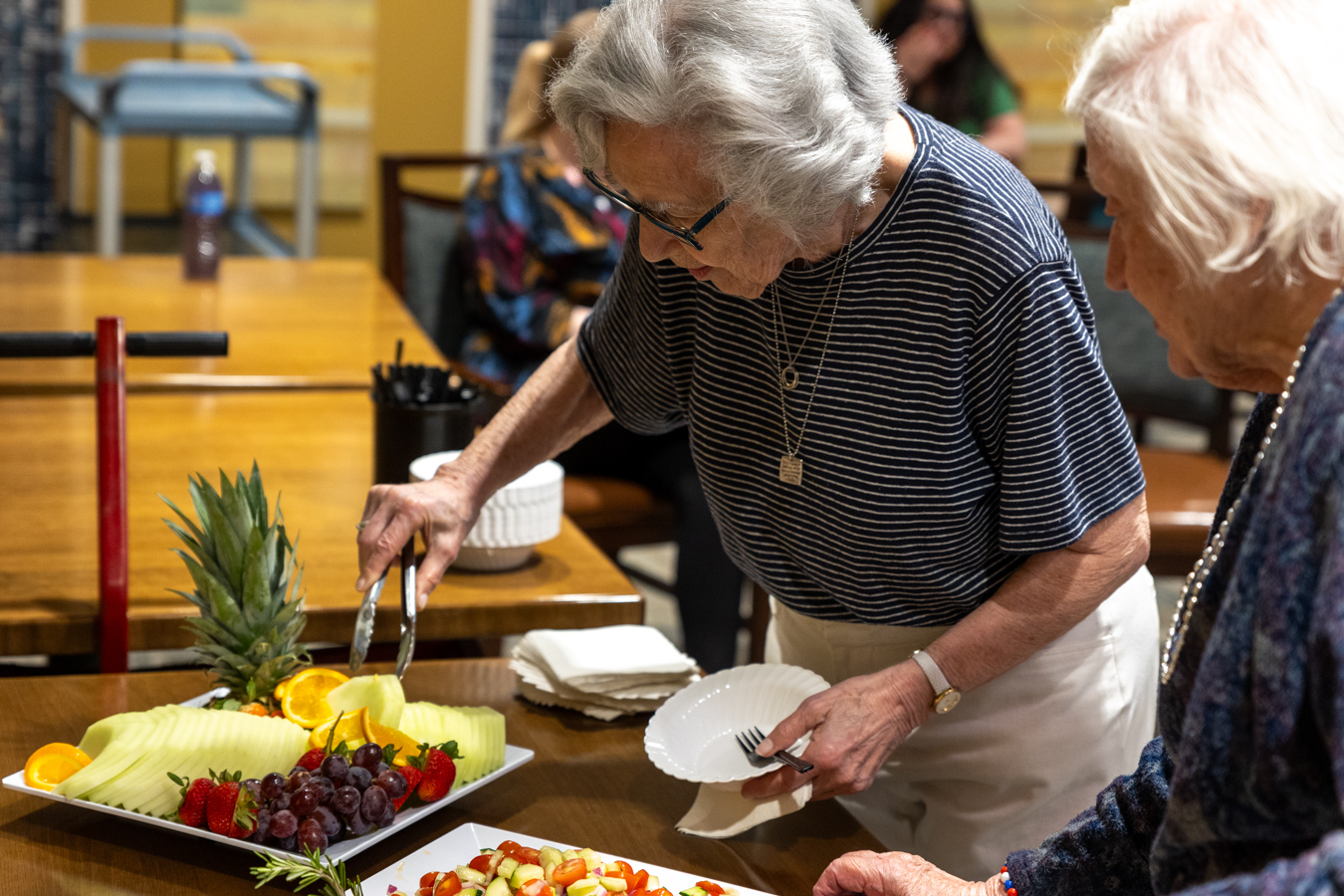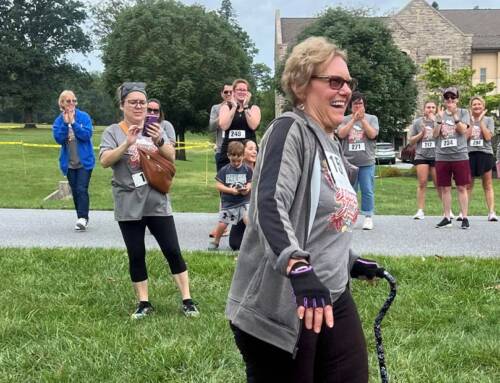As the warmer months approach, it's especially important for seniors to stay hydrated, for many reasons, including regulating body temperature and maintaining electrolyte balance.
Many people don't realize how problematic dehydration can be for older adults — and how common it really is, according to Greatseniorliving.com.
- According to a review article in e-SPEN, the European e-Journal of Clinical Nutrition and Metabolism, one study showed that about 31% of long-term care patients were found to be dehydrated.
- Treating elderly people who are hospitalized for dehydration costs the medical system about $1.36 billion annually, according to an article in Nutrition and Healthy Aging.
- Dehydrated patients are six times more likely to die in the hospital than patients who are not dehydrated, according to a study in Age and Ageing.
Anthony Crespo, a full-time clinical dietician at Masonic Village at Lafayette Hill and Masonic Village at Warminster, recently gave a presentation to Lafayette Hill residents about the importance of water in the body. On another day, residents participated in a hydration activity through the Wellness Center. Staff member Jeanine Hendrie offered six different flavored waters for them to taste to quench their thirst, including the brands Hint Water and Vitamin Water.
"Sometimes [plain] water tastes bland, so we are here to try different brands and flavors that you may end up wanting to buy at the supermarket," Jeanine said.
The role of water cannot be denied; in fact, each person is made of 60% water. Water assists with bodily functions, keeps blood pressure in line, lubricates joints and protects body organs and tissues.
Certain fruits (and vegetables) are very hydrating for the body. For example, a peach is made up of 86% water; a pineapple is 87% water; and watermelon is the most hydrating fruit, at 96% water. Some or all these fruits should be incorporated into your diet for maximum hydration.
Dehydration can be caused by many factors, such as overheating, which can lead to increased fluid loss through sweating; and age-related changes, such as decreased fluid volume and thirst. Certain medications can have side effects, such as diuretics, that increase urine production; or you may suffer from chronic diseases, such as diabetes, dementia or kidney disease, that can lead to dehydration.
Visual signs of dehydration include the more common (cracked lips and dry mouth), to the more serious, including increased heart rate, sunken eyes, weakness and confusion and feeling lightheaded. More signs include decreased sweating in the armpit area and darkened-color urine.
Complications from dehydration include heat exhaustion or stroke, seizures from electrolyte imbalance, and an increased risk of urinary tract infections, kidney stones and acute kidney failure. Some people who are severely dehydrated may need to go to the emergency room to replenish their fluids.
To increase fluids, try eating foods with high water content, such as melons, tomatoes, cucumbers, celery and lettuce; drink between 40 and 60 ounces of fluid daily (including tea or coffee); try juicing or making smoothies; and set a reminder on your cell phone so you don't forget to hydrate! Cucumber and tomato salad or fruit salad are both delicious options and an easy way to stay properly hydrated.
Being aware of the risk of dehydration is the first step toward averting it. Although dehydration can be serious for older adults, it's also preventable and treatable. So, make the time to get your fluids in!







